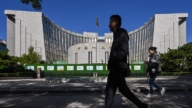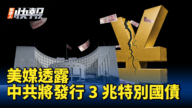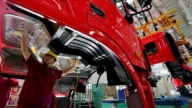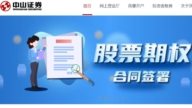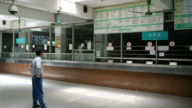【新唐人2014年03月08日讯】中共总理在《政府工作报告》中,有关经济发展的目标前后矛盾,引起媒体和经济学家广泛关注。在雄心勃勃的任务清单中,最后关键问题还是落到了要把投资作为稳定经济增长的关键。那么,这么多年来,靠投资拉动国内生产总值(GDP)带来的大量浪费,和环境污染等诸多弊端的模式,为什么还是会定位为未来稳定经济增长的关键呢? 我们来看看专家分析。
中共总理李克强在《政府工作报告》中,承诺保持快速增长、抑制通货膨胀、创造1000万个新的就业机会、遏制严重污染和应对不断增长的金融风险、同时转变中国的经济增长模式。
李克强也承认,今年“确保中国经济这艘巨轮行稳致远”的任务,将是“艰钜”的。李克强说,目前局面是“深层次矛盾凸显”,“经济下行压力依然较大”。
在《政府工作报告》中,中共政府将增长目标维持在7.5%,要实现这个目标,李克强强调,要“把投资作为稳定经济增长的关键”。
北京天则经济研究所副所长冯兴元:“基础设施投资在经济环境不好的时候,还是比较重要的,关键在于怎么弄啦,很多项目在一个公平竞争的环境下,让更多的民营企业同等的参与,但是现在这种司法、政府、地方的政府的权利没有受到有效约束下,腐败也是普遍存在的。 ”
旅美经济评论家杰森.马:“只有高速增长的经济,才能掩盖它很多,比如房地产泡沫,地方政府债务等这样的问题,另外也只有高速增长的经济,才能保证官员不断贪婪的错事,不会和老百姓直接发生冲突。”
去年7月,诺贝尔经济学奖得主,美国普林斯顿大学教授克鲁格曼(Paul R. Krugman),在《纽约时报》,发表《中国经济的庞氏骗局》文章中,指出中国经济就像骑在一架自行车上,不前行就会倒下,现在中国这辆“ 庞氏自行车”正冲向一堵墙。而中共政权的合法性主要是来自于经济上的成功。
克鲁格曼举例说,中国企业正在疯狂投资,可是投资不是用产能来服务消费者,现在在中国投资生产出来的产品,并无明确的最终买家。
多年从事中国经济研究的美国资深经济分析师简天伦博士指出,骑过自行车的人都知道,速度越快,自行车越稳,而放慢速度骑,对控制自行车的人技术要求越高,越容易摔倒。中国经济放缓后形成的鬼城、煤城,就是对克鲁格曼说法的印证。
去年10月21号,中共总理李克强在一次经济形势报告中,解释了中国在面临经济下行压力时的困境。他也用“骑自行车”来比喻中国经济的发展状态,他说﹕“不动就会像骑自行车,会摔下来”。
由于前些年靠投资拉动国内生产总值(GDP),造成钢铁和其他建筑相关产业的产能严重过剩。李克强表示,中国政府在今年就要淘汰钢铁2700万吨、水泥4200万吨、平板玻璃3500万标准箱等落后产能。
李克强在《政府工作报告》承诺,维持GDP在7.5%的同时,全年家庭消费增长目标也保持在14.5%不变,但中国政府去年未能达到的这一目标,去年零售额仅增长13.1%。
杰森.马:“中国的经济你不能看它的指标,当然它的增长速度一定会实现,不管是统计局给它实现的,还是印钞票、靠投资硬实现这个7.5%速度。他又要保证速度,同时他还希望改变中国的经济结构,这样的话,很可能将来出问题给社会造成的影响会更大,比如说地方债务还本上,金融体制出问题,他不得不大量开始印钞票,结果就是老百姓面临通胀,老百姓生活就会更加拮据。”
旅美经济评论家马杰森指出,中共用大量印制钞票,制造通货膨胀来解决问题,是最能蒙骗老百姓的,物价上涨后,民众想不到是政府发行过多钞票引起的,而是指责商家卖的太贵。
采访编辑/刘惠 后制/萧宇
Why Can’t The Chinese Economy Rid Itself of Its Old Routine?
Inconsistencies in the Chinese Premier’s government work
report speech regarding economic development
has caused widespread concern among media and experts.
Investment is at the top of an ambitious task list
for maintaining economic growth.
For many years, China has used investment to drive
the GDP which has led to a lot of waste,
environmental pollution and other problems.
Why does China still use such a model
for the future economy?
Let’s take a look at expert analysis.
In the government work report given at the annual NPC
conference, Chinese Premier Li Keqiang promised
to maintain fast economic growth, curb inflation,
create 10 million new jobs, curb serious pollution,
cope with the growing financial risks,
and change China’s economic growth model.
Li Keqiang also admitted that the mission to “ensure
the long term stability of China’s economy is ‘daunting’."
“The deep-seated contradictions are highlighted" Li said
of current situation, and “the economic downward pressure
is still large".
In the government work report, the CCP government
set the economic growth goal at 7.5 percent.
In order to reach the goal, China needs to “set investment
as the key to maintain the stability of the economic growth",
Li remarked.
Deputy director of the Unirule Institute of Economics,
Feng Xingyuan: “Infrastructure investment is important
when the economic environment is not good.
The key is how to deal with it.
(It will be good,) if more private companies
are allowed to participate and compete
with each other in a fair environment
to bid on those projects.
But corruption is widespread without any valid restraint
to the power of judicial, government, and local government
nowadays."
Jason Ma, economic commentator based in the U.S.:
“Only a fast-growing economy can cover up
a large amount of problems such as real estate bubbles
and local government debts.
Also, only the fast-growing economy can avoid direct
conflict between the corrupt officials and the people."
Paul R. Krugman, Nobel Laureate in Economics,
and U.S. based Princeton University professor
published an article in The New York Times last July
titled “China’s Ponzi Bicycle Is Running Into A Brick Wall".
The article says China’s economy is “a bicycle economy
that falls over if it stops moving forward",
and the “bicycle is running into a brick wall".
The legitimacy of the Chinese Communist regime
mainly relies on its economic success.
Krugman made an example that Chinese businesses were
investing furiously, not to build capacity to serve consumers.
Ph.D. Jian Tianlun, a senior economic commentator based
in the U.S., pointed out that the faster a bike is,
the more stable, and more skills are needed to ride
a bike slowly in order not to fall.
Jian said the ghost cities and minery cities after the slowing
down of China’s economy proves Krugman’s words.
In an economic report dated Oct. 21, Prime Minister
Li Keqiang explained the difficulties of Chinese economy
as its faced with being swept downstream.
Li also used riding a bicycle as a metaphor, saying,
“(If the economy) doesn’t move, it will fall like riding a bike".
Relying on investment to push the GDP over the past
few years has led to serious excess capacity
of steel industry and other construction-related industries.
Li said the Chinese government will eliminate
27 million tons of iron and steel, 42 million tons of cement,
35 standard containers of flat glass,
and other backward production capacity.
In the report Li promised to maintain
a 7.5 percent growth in GDP,
and to maintain a 14.5 percent
annual household consumption growth.
Last year the Chinese government fell short of this year’s
goal with only a 13.1 percent of increase.
Jason Ma: “One can’t just look at the numbers to understand
the Chinese economy.
Growth will certainly appear, no matter if it’s with
the help of the Bureau of Statistics
or by printing money and investments
to reach the 7.5 percent.
(The Chinese government) wants to maintain
the speed of growth but also wants to change
China’s economic structure, which is likely
to bring negative impacts on the society.
For example, the local government debt is an issue
of the financial system, and then the government
had to print a large amount of money, which led to inflation,
and people’s lives are tighter."
Jason Ma indicated that the CCP’s excessive
money-printing, which is being used as a solution
to economic issues, has created inflation and deceived
the public.
The public isn’t aware that the government
is releasing too much money.
Instead, people blame businesses for setting
exorbitant prices.
Interview & Edit/Liu Hui Post-Production/Xiao Yu


